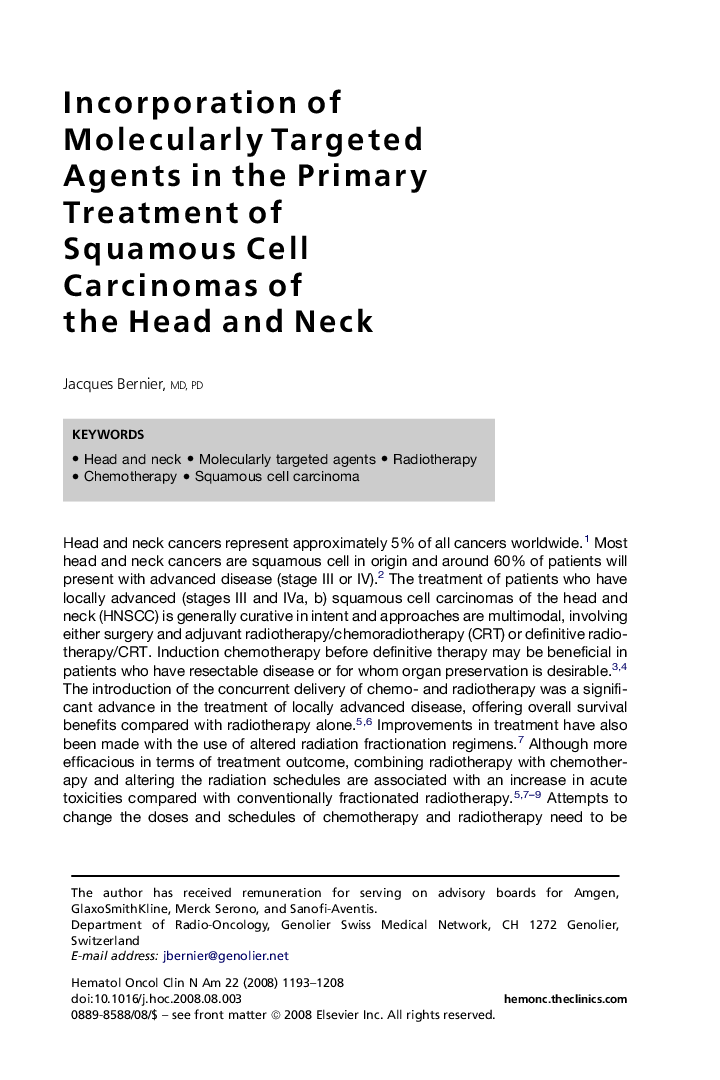| Article ID | Journal | Published Year | Pages | File Type |
|---|---|---|---|---|
| 3331974 | Hematology/Oncology Clinics of North America | 2008 | 16 Pages |
Abstract
Molecular markers will become increasingly important in directing treatment approaches in locally advanced squamous cell carcinomas of the head and neck (HNSCC). Several predictive markers have been identified that may be useful for selecting tumors most likely to respond to radiotherapy or chemotherapy. However, few markers have potential as therapeutic targets. The epidermal growth factor receptor (EGFR) is the most extensively investigated of these targets in the clinical setting. EGFR inhibitors have demonstrated activity in several studies and the monoclonal antibody cetuximab is currently the only biologic agent approved for the treatment of locally advanced HNSCC in combination with radiotherapy. Another potentially promising approach is the inhibition of vascular endothelial growth factor, alone or in combination with EGFR inhibition.
Related Topics
Health Sciences
Medicine and Dentistry
Hematology
Authors
Jacques MD, PD,
